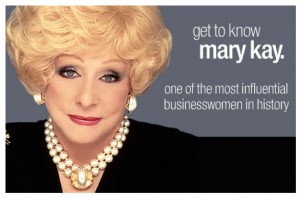Comm299 was extremely beneficial for a number of reasons, namely the topics of drafting a professional resume/cover letter/approach letter, how to cold call, tips on public speaking, and tips on interview. While individually all these things are important, I will most remember Comm299 for introducing me to the business culture and professionalism, a new and exciting experience for me. Furthermore, Comm299 challenged me to find roles within the CUS as well as continually encouraged me to consider my future career but giving me an overview of many career advancing opportunities as an undergraduate student as well as the options coming out of Sauder. Despite all my complaining about the work load I now see that Comm299 was a very useful class and I’m glad I took it.
Category: Uncategorized
Who Inspires Me?
When I think of my greatest business inspiration one person comes to mind, my grandpa. As a young man coming over to Canada with only $20 dollars in his pocket, no command of the English language, and little education it is obvious that he had a huge mountain to climb. Originally working long hours as a chef and then running grocery store he slowly built his wealth. However, its what he did with the little money he saved that really made the difference. He started slow by buying residential real estate then he began buying large commercial buildings. Today he is retired as a multimillionaire collecting huge amounts of rent every year. Beyond that, however, he is the most humble man I know. He doesn’t bask in his wealth and live an extravagant lifestyle. However, he always gives generously to charities and his family. He is a man that I would truly like to model when dealing with my finances and my life.
Henry Mintzberg, a professor of Management Studies at McGill University, shared his unique opinion on the cause of the recession in the newest edition of the Economist. To sum up his perspective simply, poorly run companies caused the recession. He goes on to state that no amount of economic intervention can end the recession; rather, change must come from the source, when corporate America cleans up its act.
Mintzberg places substantial blame on CEOs whom he believes run companies recklessly. Essentially, the CEOs get bonuses based on an increase of share prices. He goes on to explain that their are two ways that this may be done. One way, the ethical way, would be to raise share prices by conducting better research, improving products, and offering better service. The other way, which Mintzberg accuses the CEOs of, is raising stock prices through depreciating the brand, cutting investments in research, and confusing customers by deceptive pricing. This, he argues, raises prices long enough for CEOs to collect their bonus and leave.
There is more that Mintzberg has to say on the reasons why enterprises trashed the economy which can be found in the article link below.
http://www.economist.com/blogs/freeexchange/2010/12/management
Blog #9 Students Put Fun in Budget
Compared to my parents generation, young people, such as myself, take a very different approach to saving and budgeting. Instead of saving for a family, a house, and financial security in general right after coming out of university, young people tend to have a different set of goals which they save for. Many university students and recent graduates save for big trips to places like Europe or Africa or for other short-term goals that make life fulfilling by setting aside some money from every pay cheque.
One possible explanation for this change, when looking at Maslow’s Hierarchy, is that the fact that our parents had much different needs than we do. Whereas my parents were in the baby boomer generation which tended to be more concerned about security and safety, young people today grow up in quite an affluent society where self-fulfillment is more sought after; self-fulfillment being higher up in Maslow’s hierarchy.
It’s all about balance. Eventually, most young people plan on settling down, having a family, and saving for retirement. However, there is less sense of urgency. Personally, I hope to be able to do some humanitarian work in Africa before I graduate, but that depends on how well I save and budget my money.
http://www.financialpost.com/personal-finance/Student+money+Save+stress+budget/3906321/story.html
Blog #8 The Future of the Euro
In the past year, the EU has spent copious amounts of money on bailouts in Iceland, Greece, and most currently, the €85 billion bailout for Ireland. All these events have caused the Euro to fail, bringing the surplus European countries, namely Germany, down with it.
The main issue is whether Germany can continue to live under the Euro. Currently, they are fed up with the inefficiency of the aided countries and they fear that the European Central Bank will inflate away the debt.
So, should the Euro be broken up? The economist suggests that it might happen. It goes on to suggest that there are two ways that the currency could be split. One is that the weaker countries may choose to leave to devalue their currency, the other option could be that Germany could leave with the Netherlands and Austria and restore the D-mark. Either way, it would be very costly. However, this may be the reality in the near future.
http://www.economist.com/node/17629661
Blog #7 Mary Kay Inc.
One of the most successful entrepreneurial companies is Mary Kay Inc. which was founded by Mary Kay Ash in 1963. This is a company that sells skin care and cosmetic products. Largely considered as American’s leading female entrepreneur, Mary Kay Ash started the company with $5000 loan. Now the company now does several billion dollars of sales a year. It was because of Mary Kay’s dedication and hard work that the company became a success. Behind the business is a strong ethical foundation. Mary Kay Ash claims that the foundation of the company was built on the Golden Rule, that is, “treat others as you would want them to treat you”, to which she accredits much of the company’s success. She also creates a great work environment for employees by encouraging them to live a balanced life. She lives by motto “God first, family second, career third.”
http://www.college-startup.com/college/15-successful-entrepreneurs-who-didnt-need-college/
Blog #6 Comm 486R Takeaways
A few weeks ago I had the privilege of sitting in on an amazing specialty commerce course offered to a select group of third and fourth year commerce students. Essentially, the purpose of the class is to focus on case studies and apply the knowledge gained from all previous classes to analyze companies. In the class I attended, we focused on two cases, “Commerce Bank” and “Toyota TPS”.
Commerce Bank has a unique business model which more strongly emphasizes customer service. It offers many free services such as entertainment and food for its customers. Basically, as a company, its found a small niche in the banking industry that has yet to be exploited and it has payed off.
Toyota TPS is the company’s production model which many car companies have tried to be emulate. In this class, we identified two main factors that makes the TPS system successful, that is, the principles of Jikoda and Kaizen.
Overall, Comm 486R was an amazing class with two great professors with tons of business experience. It is particularly interesting as it deals with practical applications. This is a class that I would certainly like to apply for in the future.
For almost every occasion and often when there isn’t an occasion at all, retailers advertise huge sales on their products. These “percent off” sales are so common, it is rarer to see a retailer without any sort of sale than a retailer with a sale. The main idea behind offer these discounted items is the hope that there will be some items that the customers will buy at full price.
While 25% off discounts were once seen as huge, today they may not be enough to entice buyers. Advertisements often claim 50, 60, or 70 percent discounts. Many companies use a different approach to the “percent off” discounts so their effectiveness is not worn out. One tactic is to offer a discount only if the buyer spends a minimum amount of money. Another approach is to give a discount on the second item after the first item is bought at full price.
It is important for many shrewd shoppers to feel like they “won” by getting a big discount. And despite the fact that these tactics are used so regularly, it is still effective and arguably necessary, as customers have become accustom to discounts in their everyday shopping.
And, as the Christmas season approaches, many of us will use our shrewd consumer skills to “win” the gifts we intend on giving.

http://www.nytimes.com/2010/10/12/business/media/12adco.html?_r=1&ref=business
In light of the recent MIS/IT lecture, it would be fitting to address the increasing usage of IT in business schools around the world.
As the business world continues to rely more and more on IT each day, many business school are coming to terms with the fact that IT needs to be an important and integral part of education. Indeed, Sauder School of Business has certainly adopted this mentality as demonstrated with the implementation of iclickers, blogs, tweeter, vista, and many other programs.
However, beyond all the impressive technology schools have the offer, the big question is whether or not the technology actually enhances learning. In Virginia’s Darden Graduate School of Business, for example, a group of MBA students were given a device called the Kindle DX e-reader to supplement the textbook they were also given. According to the students, the constant switching between textbook and Kindle was a hinderance as it was far slower and more complicated than learning straight from the textbook.
However, beyond learning enhancement, many schools are implementing devices which make group communication much easier. At Duke University a “Telepresence” system has been installed. Essentially it is a giant plasma screen which portrays life size images of people from other parts of the world, allowing overseas guests to participate in the lectures. Furthermore, campuses in Singapore, France, and Dubai have constructed virtual campuses where members from around the world can learn and interact.
In conclusion, in a world with increased reliance on IT, one should always question whether IT enhances the quality of education and communication or if it acts as a hinderance. In doing so, one is able to take the best of both worlds in order to truly obtain the highest quality of learning.
http://www.economist.com/whichmba/MBAs-and-technology
While browsing The Economist website, I came across a topic that I have never really considered, that is, the effects of a rising commodity price. Currently, wheat prices are up almost double what they were in June due to fires and drought in the large wheat-exporting nation of Russia. The principles of supply and demand would reason that as the supply decreases the quantity of goods decreases and the price of the goods goes up, assuming demand stays the same. And sure enough, this is exactly what has happened to the wheat commodity.
The social implications of these high wheat prices are more serious than I thought. For example, the country of Mozambique experienced a riot a month ago partially prompted by the wheat prices. The riot resulted in a least a dozen dead and more than 400 people injured. As a result, the government decided not to carry through with the proposed 30% increase to bread prices. There have also been riots in a number of African and Eastern European countries.
One reaction towards the rising wheat prices has been countries stocking up on wheat in order to have enough for the future. This panicked buying just amplifies the effects of the Russian wheat problem. Most experts believe that the current wheat prices are not that big of a deal. Certain factors, such as farmers substituting other cattle feed for wheat, have brought the demand down. And ultimately, though the prices are currently higher than average, there is still more than enough wheat to go until Russian bounces back.
http://www.economist.com/node/16996835
http://www.economist.com/node/16994407





